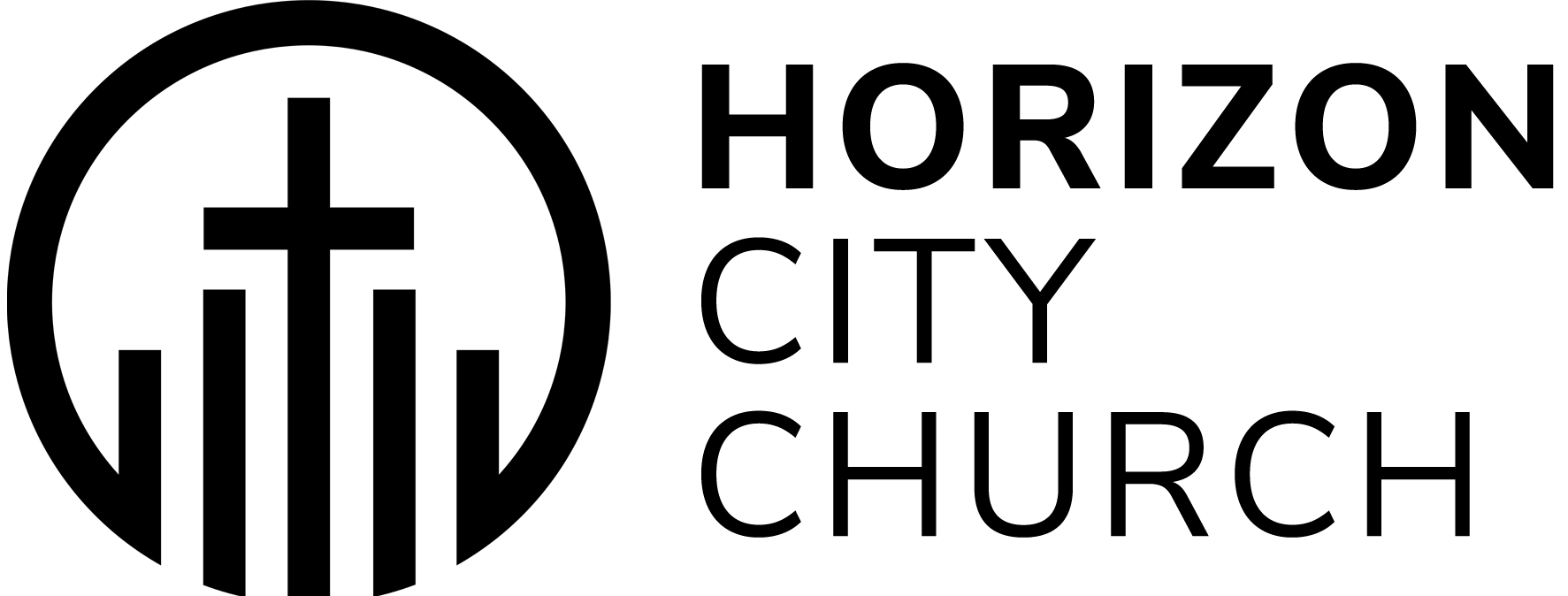
10 Reasons Why We Are Southern Baptists
I’ve been connected to the Southern Baptist world since 2017. I’ve got lots of Southern Baptist friends. I graduated from a Southern Baptist school. And I’ve been influenced by various Southern Baptist authors and pastors since the early 2000s.
So, as I stepped into my church planting journey, the Southern Baptist Convention (SBC) was the most natural fit.
However, joining the SBC wasn’t automatic. I understood the importance of assessing whether the SBC truly aligned with our goals and vision.
The SBC is a family of 50,000+ churches. More than 12 million Americans claim to be affiliated with an SBC church. The SBC is a big family and, as with any family, there’s some disfunctions—we’ve got some crazy uncles.
But ultimately, I realized that the SBC is indeed the best option for Horizon City Church. So, here’s the ten compelling reasons why we chose to be affiliated with the SBC? (Plus one bonus reason).
Reason #1: We’re “Baptist”
The leaders of Horizon City Church hold to a set of doctrines and ideas that are often classified as “Baptist.” The doctrines and ideas that we’ve embraced align with the doctrines and ideas that’ve historically been affirmed by various Baptist groups throughout the centuries. So, since we’re theologically Baptist, it makes sense to partner and network with other Baptist churches.
Of course, while the SBC is the largest Baptist denomination, the SBC certainly isn’t the only game in town. There are other Baptist networks. In fact, there’s 50+ other Baptist networks across the country, including influential Baptist denominations like Converge Worldwide, Baptist Bible Fellowship, G3 Church Network, American Baptist Association, Cooperative Baptist Fellowship, and Venture Church Network.
So, why did we choose the SBC over the other Baptist networks? Well, check out the next few reasons listed herein.
Reason #2: Commitment to Global Missions
The crown jewel of the SBC is its unwavering commitment to global missions. This is my favorite part of being a Southern Baptist.
The SBC has two mission agencies: International Mission Board (IMB) and North American Mission Board (NAMB). Both IMB and NAMB are funded by the generosity of SBC churches across the nation.
Since 1845, IMB has helped send over 25,000 missionaries to 185 countries. With nearly two centuries of experience, IMB has developed lots of great processes and protocols. Partnership with IMB will allow Horizon City to develop internal structures that will allow us to effectively raise up missionaries.
Also, because of the generosity of SBC churches across the USA, those would-be missionaries will be fully funded by IMB, so that they can flourish on the mission field without the worry of finances.
If any Horizon City member wants to pursue a calling toward global missions, we’ll have a clear process and pathway forward for them, and we’ll have a clear funding source. Being connected to IMB makes sending missionaries much more probable.
Reason #3: Right Philosophy: Churches Send Missionaries, Churches Plant Churches
At Horizon City, we believe that churches should be sending missionaries. And churches should be planting more churches. That’s what we see in the New Testament.
Denominations and networks and agencies and para-church organizations ought not be the ones primarily doing the sending or the planting. Local churches ought to be the groups doing the bulk of the work—denominations, networks, agencies, and para-church organizations ought to be mostly focused on helping local churches.
SBC entities know that they do not actually send missionaries or plant churches—instead, the SBC entities are chartered and subsidized so that they can offer support to the individual churches as those churches seek to raise up global missionaries and church planters from within their own contexts.
SBC entities are structured to help churches, not take the place of churches.
Reason #4: Pillar Network: It’s My Jam!
SBC is remarkably diverse! (Some people are surprised to hear this). There’s certainly many great points of agreement and consensus, but there’s also plenty of differences, caveats, and nuances too.
Due to its size and diversity, the SBC has a bunch of subnetworks, collectives, cohorts, and niche events. Different SBC churches are going to have different doctrines or ministry philosophies, but whatever a church’s theology or ministry philosophy happens to be, there’s likely going to be a subnetwork or subgroup within the SBC that scratches their itch.
For Horizon City, it’s been the Pillar Network. Pillar Network is a network of 400+ like-minded churches, where I’ve personally found great camaraderie and opportunities for ministry collaboration. Our Pillar connections will likely yield great fruit in the years to come.
Simply put: Pillar is my jam!
Reason #5: Support from Send Network
NAMB engages in several different types of ministry. The church planting department of NAMB is the Send Network. Send Network offers support and resources to church planters (guys like me).
Assessments: Send Network takes potential church planters through an assessment process. This includes multiple in-depth surveys, interviews, a two-day long assessment event, and post-event curriculum. This process is designed to assess the readiness of the would-be church planter. The assessment team gives specific feedback to the church planter (and his wife).
Financial Support: The amount of money given to each church planter varies based on his context. For church planters in Florida, funding comes from a collaboration between Send Network and the Florida Baptist Convention. As of the writing of this article, the typical financial backing for church planters in Florida is $73,000 over four years.
Coaching: Send Network offers and facilitates monthly coaching cohorts where I can receive valuable coaching and I have the opportunity to connect with and learn from other church planters in my state. This is a great resource.
Events: Send Network hosts various events throughout the year. These events include annual conferences, regional and state-wide training events, and fun get-togethers for church planters (and sometimes for our wives too). These events allow me to connect with and learn from other church leaders. So, as I develop and learn, Horizon City will benefit.
Reason #6: GuideStone Offerings
GuideStone provides quality insurance and retirement packages. This is not exclusive to SBC churches, non-SBC churches can utilize GuideStone; however, there are several specific financial benefits that are only available to Send Network churches.
Guidestone offers high-quality health insurance, life insurance, and disability insurance policies (individual policies and group packages), at rates that are significantly less than what we’d pay on the open market. GuideStone also offers 403(b) retirement plans and various financial services for church staff and missionaries within the SBC family. This is a great resource.
Reason #7: Autonomy Within a Network
Another significant aspect of being in the SBC is the autonomy that each church holds. Unlike some traditional denominations with hierarchical structures, the SBC operates as a network of independent churches rather than a top-down denomination.
Being in a denomination is valuable for Horizon City—we can collaborate with other churches—but we wanted to make sure that we could maintain our convictions around congregational autonomy.
Side Note: Sometimes people claim that the autonomy of the local church allows pastors to escape accountability. Well, it’s definitely possible that a local church pastor could skirt accountability, but that’s only if the local church is not structured properly.
Just because the local church is autonomous does not necessarily mean that the local church has no accountability. The problem can be solved if the church has a plurality of leaders, if the congregation has a right understanding of leadership hierarchy, and if the congregation has real authority.
Reason #8: SBC is “Conservative”
When we say “conservative,” we’re not referring to politics, we’re referring to theology. A “theological conservative” is someone who has rightly conserved all of the important teachings of historic Christianity (e.g., Trinity, authority of Scripture, deity of Christ, death and resurrection of Christ, indwelling of the Spirit, traditional sexual ethics, etc.).
Historic Christian doctrine is codified in the SBC’s official statement of faith: Baptist Faith and Message 2000. And the vast majority of leaders and churches in the Southern Baptist Convention unapologetically defend the key tenants of historic Christianity. Tragically, this is not true of every Baptist denomination in the USA.
As mentioned earlier in this article, there’s definitely points of doctrinal disagreements amongst Southern Baptists, but those points of disagreements are almost always related to secondary or tertiary doctrines.
Over the last few years some churches have left the SBC because they felt that it was too conservative (or even oppressively conservative). I understand their arguments, but honestly, I simply disagree with their assessment. The SBC rightly aligns with the historic Christian doctrines and values that have been handed down over the last 2000 years.
On the flipside, there’s been some people that have chided the SBC for being too liberal or for allowing “wokeness” to exist in our network. Yes, I do agree, there’s definitely some leaders in the denomination that I think are more “woke” than I’d prefer.
However, overall, my assessment is that the vast majority of Southern Baptists across the country would absolutely reject any toxic progressive ideology that we might label as “wokeness” and the vast majority of Southern Baptist leaders genuinely hold to solid conservative theology and values.
Again, there’s definitely some toxic ideology within the SBC. But I think that it’s significantly less than what some people would have you believe.
Reason #9: Significant Education Discounts
Any member of an SBC church seeking theological education will receive significant tuition discounts if they attend an SBC-affiliated school.
For example, as of the writing of this article, if a member of Horizon City wants to pursue a graduate degree from Midwestern Seminary (my alma mater), the tuition rate right now would be $295/credit. However, the cost for any student coming from a non-SBC church would be $485/credit. That’s huge!
Reason #10: The SBC Annual Event
Once per year there’s an annual meeting of the Southern Baptist Convention. Every church in the network has the right to send “messengers.” Those messengers help make significant decisions at the annual meeting each year.
I love that our denomination allows churches to have a say in how things run. Again, the SBC does not have a top-down hierarchy. There’s no archbishop or district superintendent.
The SBC is governed by the churches themselves. If we don’t like something happening in our denomination, we’ve got the power to voice our frustrations each year at the annual meeting.
Also, the annual event offers networking opportunities, presentations, trainings, informational luncheons, and a massive vendor hall. Horizon City intends to send messengers to the annual meeting each year. The Horizon City messengers will be able to bring back content and resources to our congregation that should pay dividends for years to come.
Bonus: Opportunity to Influence Changes
Okay, I originally said I was only going to give you ten reasons, but here’s a bonus: We are in the SBC because we see the opportunity to influence the network and bring positive changes.
The SBC certainly has problems. As I mentioned above, there’s definitely some toxic ideology floating around the SBC world, and it concerns me. There’s some churches that affirm doctrines that I think are unhelpful (or even detrimental) to the SBC’s long-term health. The SBC needs some reforms. But I can’t help usher in reforms unless I’m actually a part of it. The best way to influence any family of churches is to be a productive member of that family.
I’ve got friends (particularly those in their 30s and younger) whom have abandoned involvement in SBC life. They’ll say things like, “I don’t got time for denominational politics.” But you can’t help enact change if you don’t have a seat at the table!
At Horizon City, we want to intentionally lean into our relationship with other SBC churches and lean into our affiliation with SBC entities because, in part, we know that’ll allow us to have the opportunity to influence the SBC in the direction it ought to go.
Conclusion
There’s no sugarcoating it: The Southern Baptist Convention isn’t everyone’s cup of tea. The SBC is a big family, and like any other family we have blemishes and quirks, and there’s distinct personalities that require extra grace and careful navigating—like I’ve already said, we’ve got a few crazy uncles.
However, even with its blemishes and disfunctions, the SBC has been a tremendous force for good, especially in the realm of global missions. This family of churches is making a real impact in the world, and we want to be a part of that. We’re in this family of churches because the benefits outweigh the drawbacks. I’m thankful for the Southern Baptist Convention and I’m glad to be a part of it.


